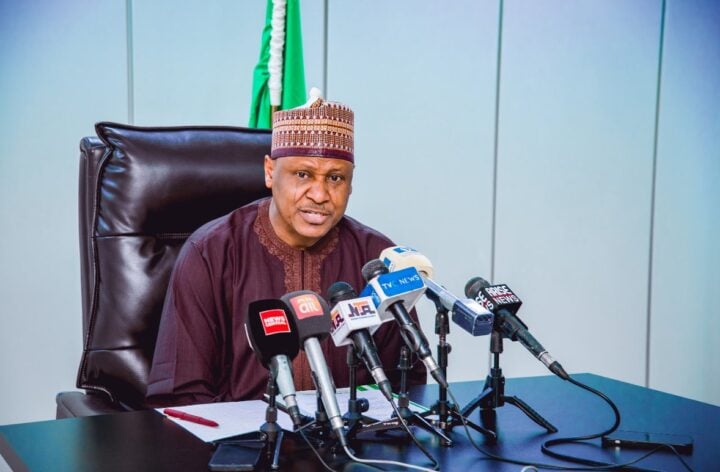FG, Christians Clash Over Genocide Claims

The Federal Government has strongly denied allegations that Christians are being subjected to genocide in Nigeria, calling the claims “baseless, despicable, and divisive.”
But Christian Groups, victims and independent reports present a sharply different picture.
Mohammed Idris, Minister of Information and National Orientation, insists that the Country’s security challenges are not targeting one faith.
He says terrorists and criminal elements attack indiscriminately—Muslims, Christians, and others.
Idris cited Government figures showing that between May 2023 and February 2025, security forces neutralised over 13,500 terrorists or criminals, rescued nearly 10,000 hostages, and secured more than 700 convictions in terrorism-related cases.
However, Christian leaders, particularly from the Middle Belt—denominations like ECWA, NKST and COCIN—reject the government’s narrative, saying their communities continue to suffer disproportionately.
They point to multiple incidents involving mass killings, kidnappings, and forced displacement, often noting the religious identity of victims and the use of religious invocations by attackers.
Some victims from States like Plateau, Benue, and Southern Kaduna describe homes and farms destroyed, children left traumatised, and places of worship under attack.
Independent research from the Observatory for Religious Freedom in Africa underscores these concerns.
Between October 2019 and September 2023, nearly 56,000 people died in nearly 10,000 deadly attacks across Nigeria. Of those, 30,880 were civilians.
At least 16,769 Christians were among them; in comparison, 6,235 Muslims were killed.
When accounting for population in affected States, Christians were about 6.5 times more likely to be killed, and 5.1 times more likely to be abducted, than Muslims.
Much of the violence in those years came from Community attacks—often in rural Christian farming settlements—frequently attributed to radicalized Fulani herdsmen.
These attacks allegedly involve killing, rape, abduction, and destruction of property.
Those who deny genocide argue that the FG statistics (terrorists/criminals neutralised, hostages rescued, prosecutions) show robust Government action and that communal violence is rooted in competition over land, poverty, and weak security, rather than religious targeting.
Meanwhile, analysts warn that labeling many varied attacks as mere “farmer-herder clashes” or “banditry” risks understating the faith-based dimension of the crisis.
The divide between the official Government stance and the evidence being collected by NGOs and victim groups remains wide.
Christian Community groups say the Government must acknowledge the data and appoint an independent body to investigate faith-based patterns in the violence.
As things stand, many communities say they continue to live in fear, caught between security gaps and disputed narratives.


